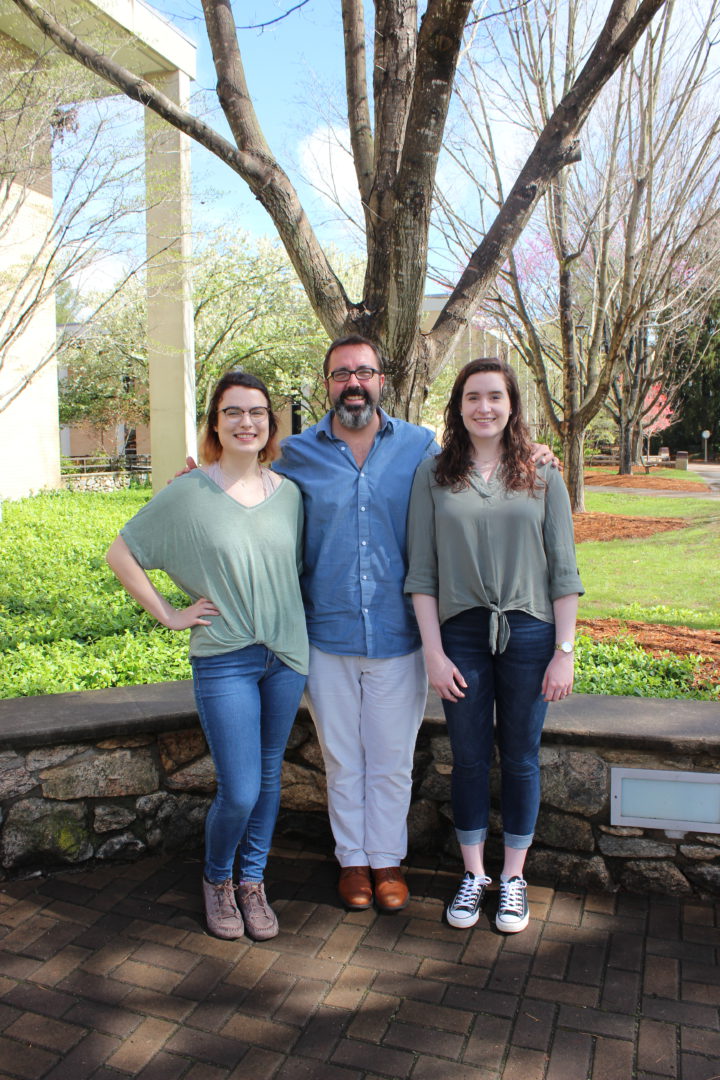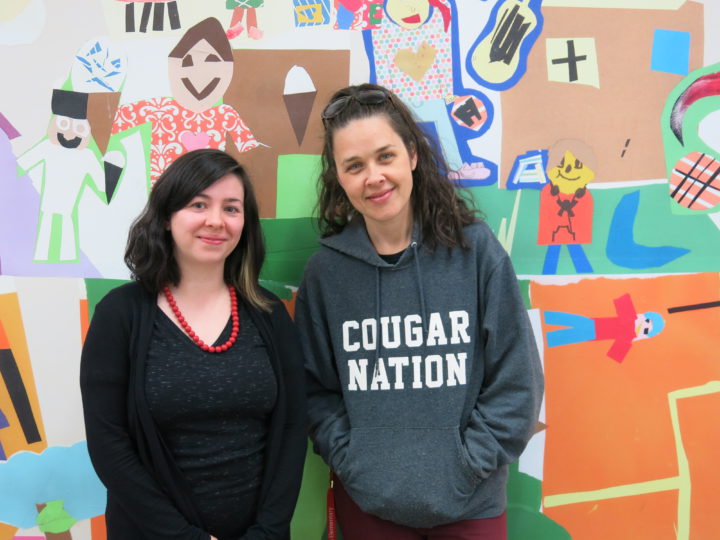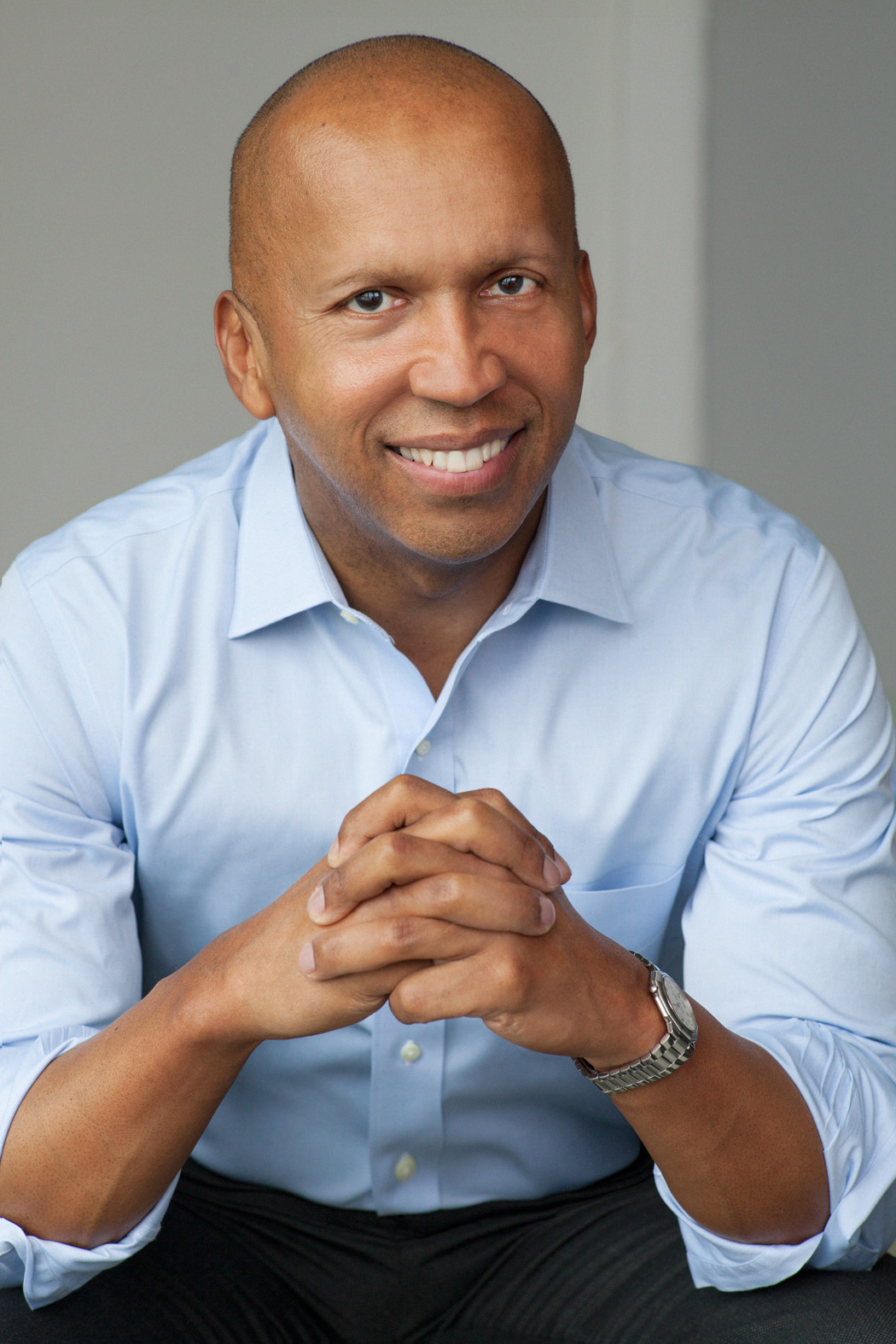“Each of us is more than the worst thing we’ve ever done,” writes Bryan Stevenson in his best-selling 2014 book, Just Mercy: A Story of Justice and Redemption. For over 35 years, the Harvard Law School graduate has worked to challenge poverty and racial injustice while arguing for equal treatment in the criminal justice system. Since establishing the nonprofit Equal Justice Initiative in 1989, Stevenson has become a national leader in advocacy and public education on issues related to mass incarceration.
On Thursday, April 25, the attorney will give a talk in UNC Asheville’s Kimmel Arena. Stevenson will explain his organization’s mission and ongoing projects, including last year’s launch of The National Memorial for Peace and Justice. Located in Montgomery, Ala., the memorial honors the country’s more than 4,400 known lynching victims. The site leads visitors along a historical timeline connecting past injustices to present-day mass incarceration rates (see “Lynching Memorial Confronts Our Country’s Past,” Aug. 31, 2018, Xpress).
According to Stevenson’s work, state and federal spending on jails and prisons totaled $6.9 billion in 1980. By 2014, that number had skyrocketed to nearly $80 billion. Meanwhile, the author continues, between 1990 and 2005, a new prison opened in the United States every 10 days.
What many of those prisons have in common, writes Stevenson, is “the extreme overrepresentation of people of color.” Add in “the disproportionate sentencing of racial minorities, the targeted prosecution of drug crimes in poor communities, the criminalization of new immigrants and undocumented people, the collateral consequences of voter disenfranchisement,” he maintains, “and the barriers to re-entry can only be fully understood through the lens of our racial history.”
Some would frame the argument in far simpler terms: Don’t do the crime if you can’t do the time. But as Stevenson emphasizes throughout Just Mercy, the justice system is far from blind. Again and again the book cites court cases in which a person’s guilt or sentencing was determined less by evidence than by their race or financial situation.
“We’re supposed to sentence people fairly after fully considering their life circumstance, but instead we exploit the inability of the poor to get the legal assistance they need — all so we can kill them with less resistance,” Stevenson writes.
Community engagement
In preparation for Stevenson’s upcoming talk, UNCA faculty, staff and students have worked to gather and distribute over 300 copies of Just Mercy to more than a dozen local organizations, churches and school groups.

For professor Patrick Bahls, the director of UNCA’s honors program, the donated books are part of the university’s broader community focus. “If UNCA is to be an anchor institution … that serves as a hub for thought, big ideas and leadership … we can’t bring these big speakers to campus and not have the community engaged in some way,” he says.
More than a third of the distributed books were paid for by the proceeds from a fundraiser organized by UNCA juniors Alayna Graves and Alexis Moon. The two students helped raise nearly $1,000 in less than a month — enough to purchase 115 books.
Their dedication, notes Bahls, exemplifies another aspect of the university’s mission. “I think that’s the highest aim of a liberal arts education: to prepare good citizens,” he declares. “It sounds old-fashioned, but I think asking what you can do to contribute to your community … is crucially important.”
Moon agrees. Although she and Graves had little prior fundraising experience, she says, their desire to help spread the book’s message helped motivate them during the fundraiser’s slow start. “It was really eye-opening to face the sort of outreach difficulties that we did,” she reveals.
But the campaign gained momentum thanks to both online and on-the-ground efforts. The apex, says Graves, came when UNCA writer-in-residence Wiley Cash helped promote their project via social media. In retrospect, says Graves, “It was a unique experience to try and figure out ways to connect with different aspects of the community that I wasn’t connected with before.”
By the book
United Way of Asheville and Buncombe County received some of those donated books. Throughout April, United Way staffers and other area residents have been reading and discussing Just Mercy as part of the nonprofit’s Learn United book club.
In the last two years, the program has partnered with various local organizations to promote important works in advance of their authors’ coming to Asheville. The list includes J.D. Vance’s Hillbilly Elegy: A Memoir of a Family and Culture in Crisis, Matthew Desmond’s Evicted: Poverty and Profit in the American City, Robert D. Putnam’s Our Kids: The American Dream in Crisis, and Michelle Alexander’s The New Jim Crow: Mass Incarceration in the Age of Colorblindness.
Elisabeth Bocklet, United Way’s director of marketing and communications, says Learn United helps participants achieve a deeper understanding of problems many local residents face. From racial inequity to hunger, from housing policies to education, each session is a chance to gain greater insight into some challenging social issue.
Learn United participant Zack Goldman, the community schools learning and evaluation manager at United Way, cites a passage in Stevenson’s book that particularly struck him. “An absence of compassion can corrupt the decency of a community, a state, a nation. Fear and anger can make us vindictive and abusive, unjust and unfair, until we all suffer from the absence of mercy and we condemn ourselves as much as we victimize others.”

Beyond the silo
In 2014, Kimberly Eggett, digital lead teacher at Claxton Elementary School, met with Mark Ackerman, the school’s counselor. “We really felt strongly that we wanted more conversations around inclusivity and cultural awareness in our own building,” says Eggett. Out of this initial conversation, the school’s Social Justice League was born.
Today, the league’s team includes representatives from each grade level, as well as four parent representatives. Besides organizing school and community workshops that address implicit bias and microaggression, the league hosts two annual listening sessions aimed at parents of color.
“We provide a meal and we ask them questions,” Eggett explains. “This is not a talk-at-them [event]. They give us feedback on how we’re doing.”
Eggett is one of many local teachers who are taking part in the communitywide book club that’s been reading Just Mercy. Her particular group, she notes, comprises both teachers and parents from Claxton, as well as two Isaac Dickson Elementary School teachers and an Asheville High assistant principal.
“Sometimes we have these conversations in silos,” says Eggett. “The fact that we’re connecting with Dickson and the AP at the high school … to have these conversations about justice and our justice system and what it means for us as educators is really great.”
Key strategies
Tiffany Iheanacho, coordinator of Buncombe County’s Justice Resource Advisory Council, says she hopes Stevenson’s upcoming appearance can foster a broader awareness of mass incarceration that will “help drive change forward and make a greater impact.”
Formed last October, the group is one component of the county’s strategy for reducing the local jail population by 15%. The effort is funded by a $1.75 million grant from the John D. and Catherine T. MacArthur Foundation as part of its Safety and Justice Challenge, a nationwide initiative aimed at reducing mass incarceration.
According to a fact sheet assembled by county staff in partnership with the Justice Resource Advisory Council, the jail’s female population could exceed capacity by 2020. An even more pressing issue, however, is the current length of stay for pretrial defendants. In 2017, such detainees made up 64.9% of the jail’s population, spending an average of 13 days behind bars.
Those aren’t the only big concerns, however. According to the fact sheet, 38% of those incarcerated in Buncombe County have mental health issues, and racial disparities in local incarceration rates are astronomical. African Americans account for 26% of the county’s jail population, despite constituting only 6.4% of its overall population.
Over the next two years, “The county intends to implement four key strategies aimed at addressing system inefficiencies and disparities, meeting the needs of those with behavioral health and substance abuse issues, and instituting non-jail options for lower-risk offenders,” notes the Justice Resource Advisory Council’s website.
In addition to advising local policymakers, the group has been working directly with clients.
The early results seem promising. Since last October, the council’s Justice Resource Center has served more than 376 individuals, providing everything from case management to education and career navigation. Iheanacho describes the center as a “one-stop shop for people involved in the criminal justice system who are seeking professional services.” Moving forward, the group also wants to explore restorative justice approaches and to develop a criminal justice racial equity action plan, she says.
Bolstering self-worth
Every Monday night, Regine Criser, an assistant professor of German at UNCA, drives an hour east to the Avery-Mitchell Correctional Institution near Spruce Pine, where 15 inmates are enrolled in her three-hour seminar on student success. The course is one of three the school offers there through its Prison Education Program.
A $195,000 grant from the Laughing Gull Foundation that UNCA received earlier this year will finance the program for the next three years. The focus is on liberal arts core classes, with an entrepreneurship angle.
“I think there is immense power in bringing education to incarcerated individuals,” says Criser. “It allows them to turn this time inside the prison into something that is productive.”
Robert Surls agrees. The 28-year-old Charlotte native is in the third year of a 6 ½- to 9-year sentence for second-degree rape. A father of nine, Surls says he applied to the program to better himself while showing his kids that “you can change if you want to change.”
Surls, who never completed middle school, says one of the program’s immediate benefits has been bolstering his sense of self-worth. In prison, he explains, it’s easy to fall into self-loathing or despair. That hopelessness, he notes, stems in part from the stigma that he knows will be attached to him. Once a felon always a felon is how many people look at it, says Surls.
His enrollment, though, has helped change both his perception and outlook. Upon completing the program and getting out of prison, Surls plans to apply to UNCA, where he intends to earn an MBA in business management.
In the meantime, Surls says he and his classmates continue to hit the books. It’s a point of pride, he notes, to be among those enrolled. “When I go home, I’ll be able to say I did this while I was in prison. … I applied myself and did what it takes to get to the next point in my life.”
Racial myths
In the final chapter of Just Mercy, Stevenson writes: “I believe that so much of our worst thinking about justice is steeped in the myths of racial difference that still plague us. I believe that there are four institutions in American history that have shaped our approach to race and justice but remain poorly understood.”

Those four, he says, are: slavery, the reign of terror following the collapse of Reconstruction, Jim Crow and mass incarceration.
One of this country’s major problems, Darin Waters maintains, is the culture’s inclination to ignore the past and focus on the future. “We don’t think in historical terms much,” says Waters, an assistant professor of history at UNCA. As a result, he continues, “People have a tendency to think these problems are new when they’re not.”
The brilliance of Stevenson’s book, says Waters, is the author’s ability to connect the dots. “His work is rooted in the past, and he knows and recognizes this.” Unfortunately, continues Waters, “We have not been willing to listen.”
Eggett, the Claxton Elementary teacher, hopes the recent book clubs can help change that, at least at the local level.
“My hope is that the conversation doesn’t stop here,” she says. “There is a lot of need to seek intentional learning, and that’s something that is hard to do, because it’s easy to just coast on through. But it’s important to continue to engage with the people around you — your neighbors and your family. It can be really hard to engage in those conversations, but I think that is what we are charged to do as a community.”
WHAT: Public lecture by Bryan Stevenson
WHERE: UNCA’s Kimmel Arena, 1 University Heights. avl.mx/5w8
WHEN: Thursday, April 25, 7-9 p.m. Free



Before you comment
The comments section is here to provide a platform for civil dialogue on the issues we face together as a local community. Xpress is committed to offering this platform for all voices, but when the tone of the discussion gets nasty or strays off topic, we believe many people choose not to participate. Xpress editors are determined to moderate comments to ensure a constructive interchange is maintained. All comments judged not to be in keeping with the spirit of civil discourse will be removed and repeat violators will be banned. See here for our terms of service. Thank you for being part of this effort to promote respectful discussion.